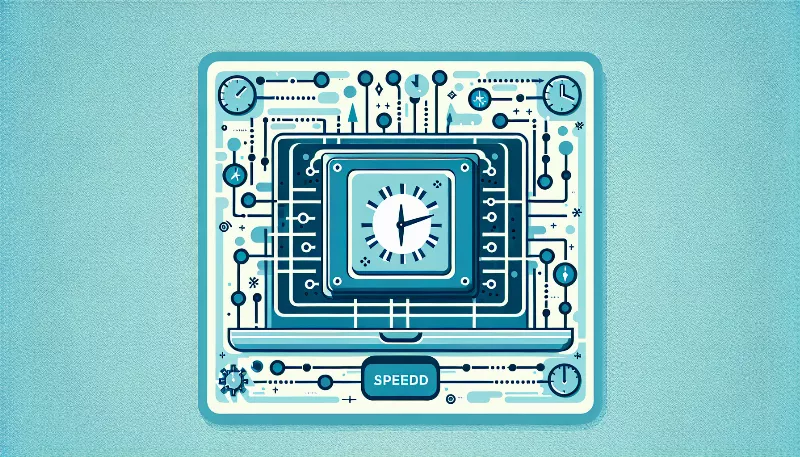What is the significance of processor clock speed in laptops?
Uncover how processor clock speed impacts laptop performance for multitasking, gaming, and productivity. Find your ideal speed for peak efficiency!

Revving Up Your Laptop's Engine: The Heartbeat of Performance
Imagine your laptop as a high-performance car, with the processor as its engine. Just as the engine's RPMs determine how fast the car can go, the processor clock speed dictates how quickly your laptop can process tasks. It's the heartbeat of your computer, pulsing with electric signals that drive every action, every command, and every click. When you're zipping through applications or crunching complex calculations, it's the clock speed that keeps your digital wheels spinning without a hitch.
The Need for Speed: Why Faster Clock Rates Matter
In the digital race, every millisecond counts. A higher clock speed means your processor can complete more cycles per second, translating to quicker loading times, smoother multitasking, and an overall snappier experience. Whether you're a gamer seeking seamless frame rates, a creative professional rendering high-resolution videos, or a student juggling multiple tabs and programs, a robust clock speed is your ticket to a lag-free journey through the digital realm.
Measuring Up: Understanding Gigahertz and Performance
Clock speed is measured in gigahertz (GHz), with each GHz representing a billion cycles per second. But it's not just about the raw numbers; it's how those cycles are used. Modern processors are marvels of efficiency, often featuring multiple cores that work in harmony to tackle different tasks simultaneously. This means that a lower-clocked multi-core processor can sometimes outperform a higher-clocked single-core one, depending on the workload. It's a symphony of speed and strategy, where clock speed plays first violin but doesn't necessarily conduct the orchestra.
Balance in the System: The Role of Other Components
While clock speed is crucial, it's not the sole factor in your laptop's performance. Think of it as a team sport, where the processor relies on other components like RAM, storage, and the graphics card to play their positions effectively. A high clock speed with insufficient RAM is like a sports car with a powerful engine but poor tires—it can't reach its full potential. Therefore, when considering a laptop's prowess, it's essential to look at the entire spec sheet to ensure all parts are working in concert to deliver peak performance.
Future-Proofing Your Tech: The Evolution of Clock Speeds
As technology races forward, so do the expectations for faster, more efficient computing. Processor manufacturers continually push the boundaries of clock speeds while optimizing power consumption and heat management. Investing in a laptop with a solid clock speed today means preparing for the software and workloads of tomorrow. It's about ensuring that your digital companion can keep pace with the ever-accelerating tempo of tech innovation.
Conclusion: The Pulse of Productivity
In conclusion, the significance of processor clock speed in laptops cannot be overstated. It's the pulse that powers productivity, the rhythm that drives responsiveness, and the tempo that dictates performance. As you embark on your quest for the perfect laptop, let the clock speed be your guide, but remember to consider the harmony of the whole system. With the right balance, your laptop will not just keep up with the times—it will race ahead, leaving lags and loading screens in the dust.










